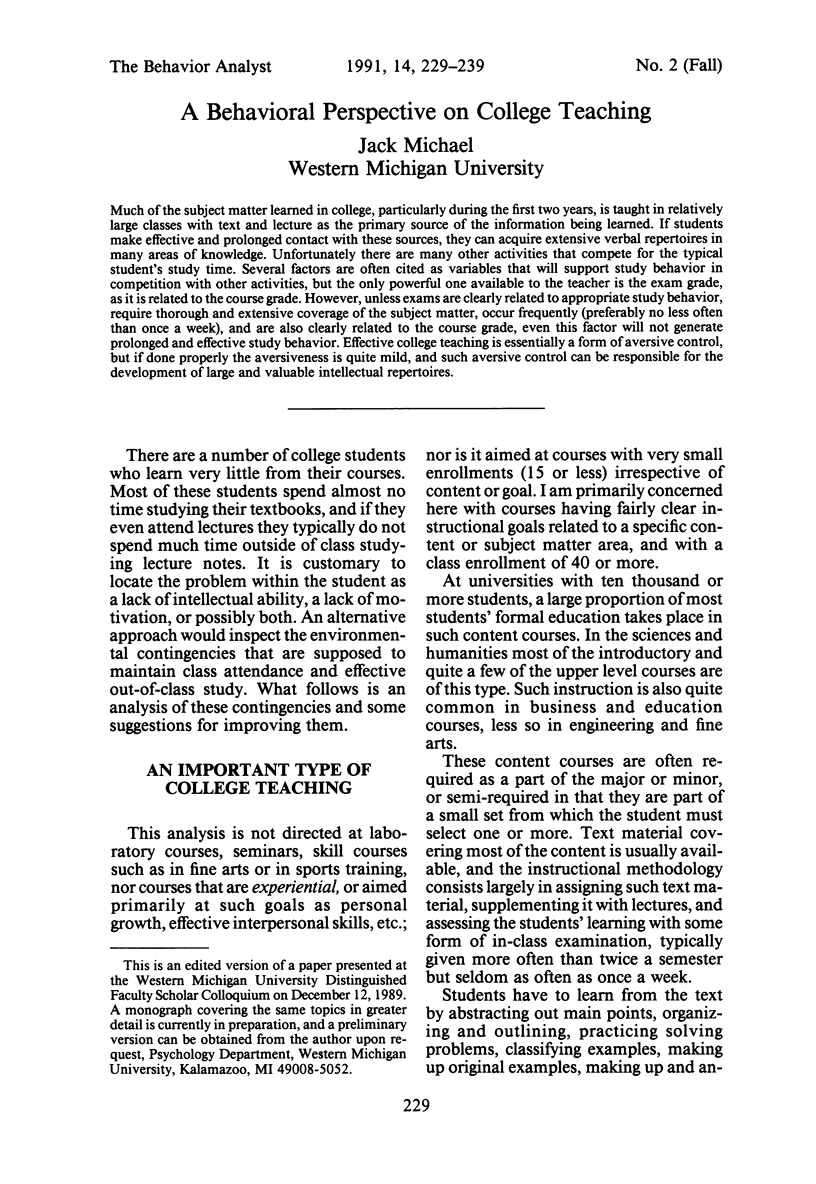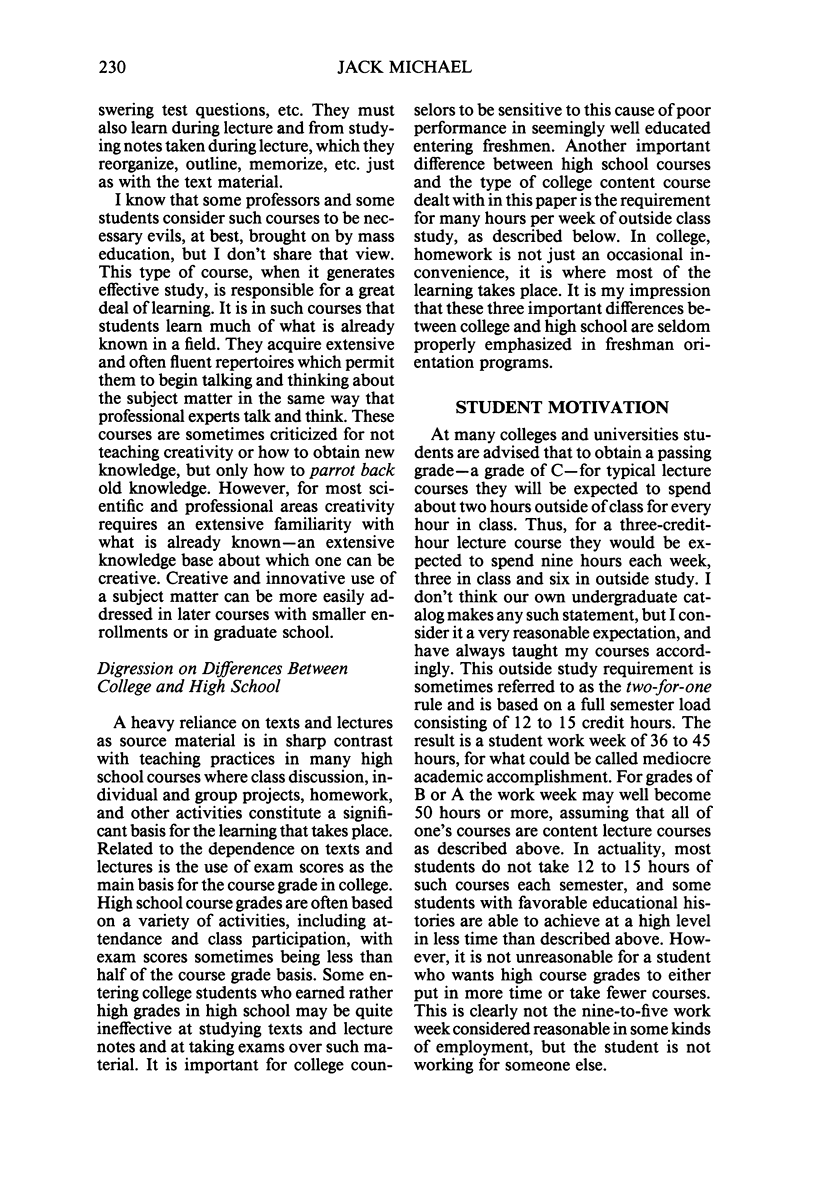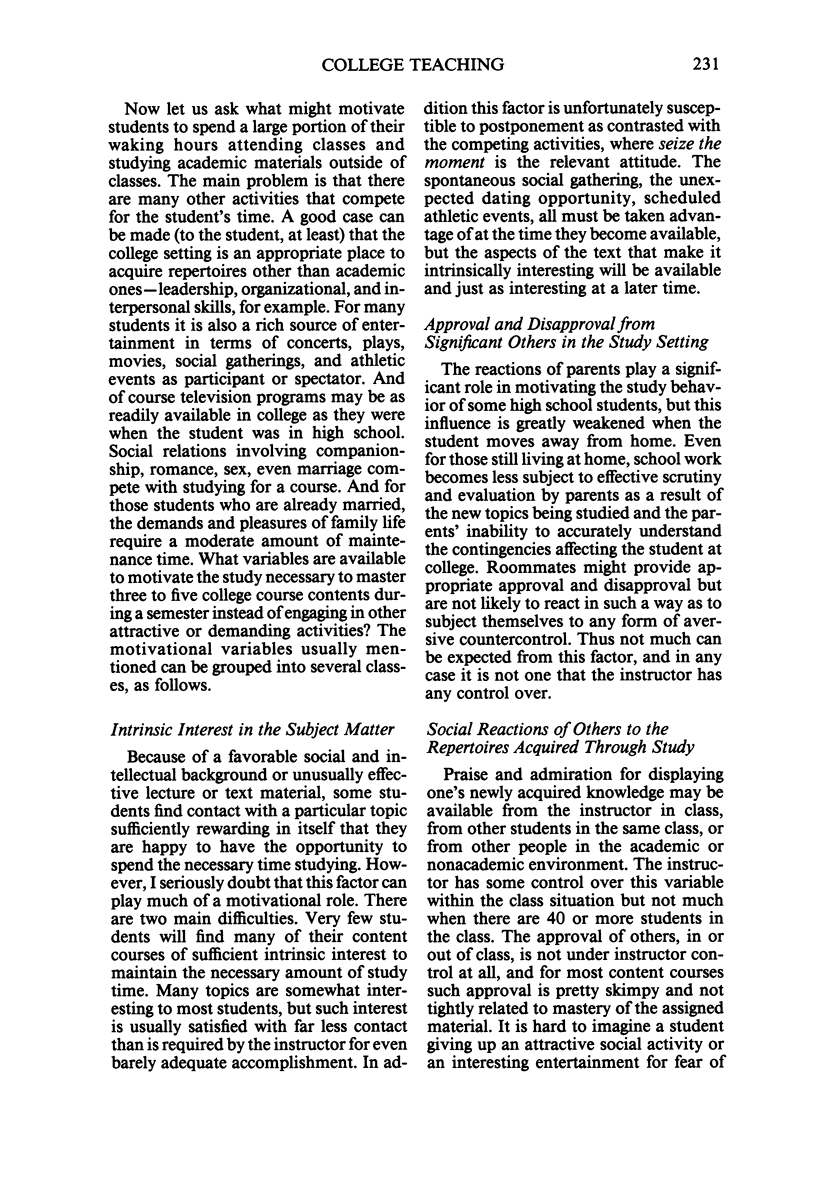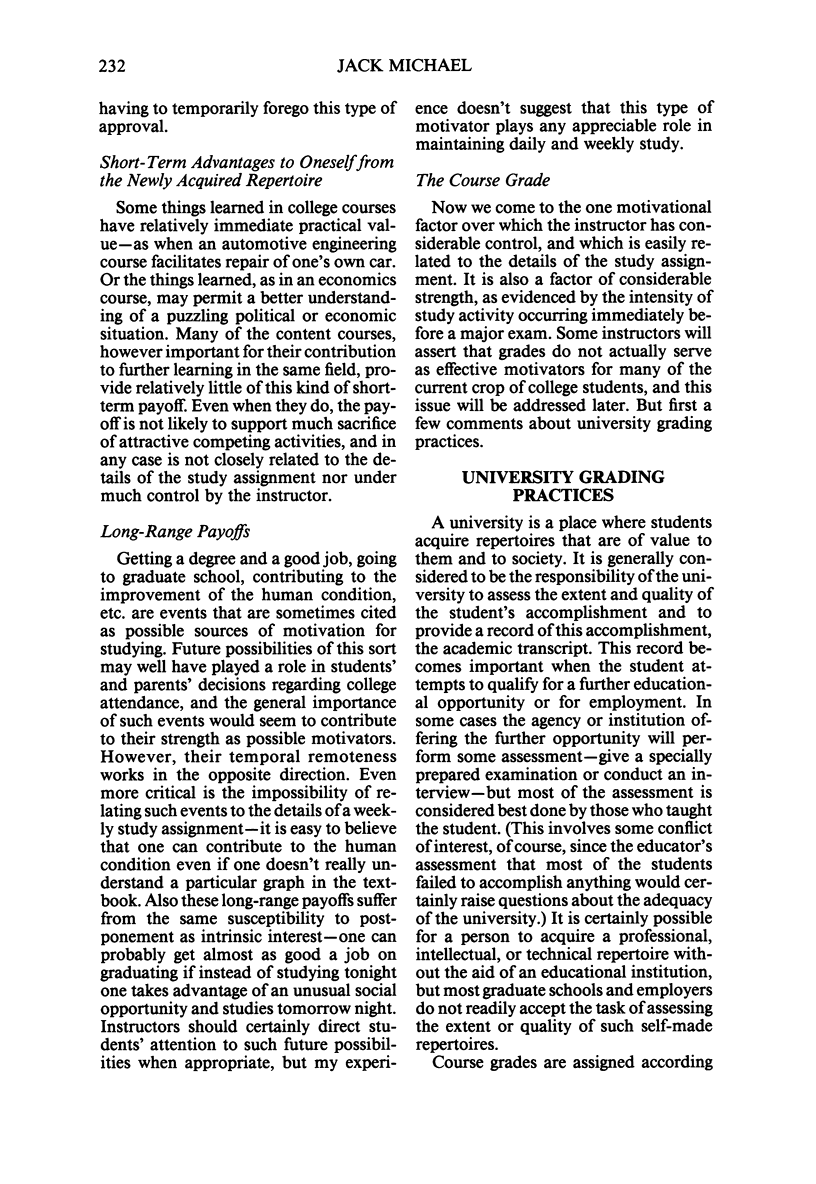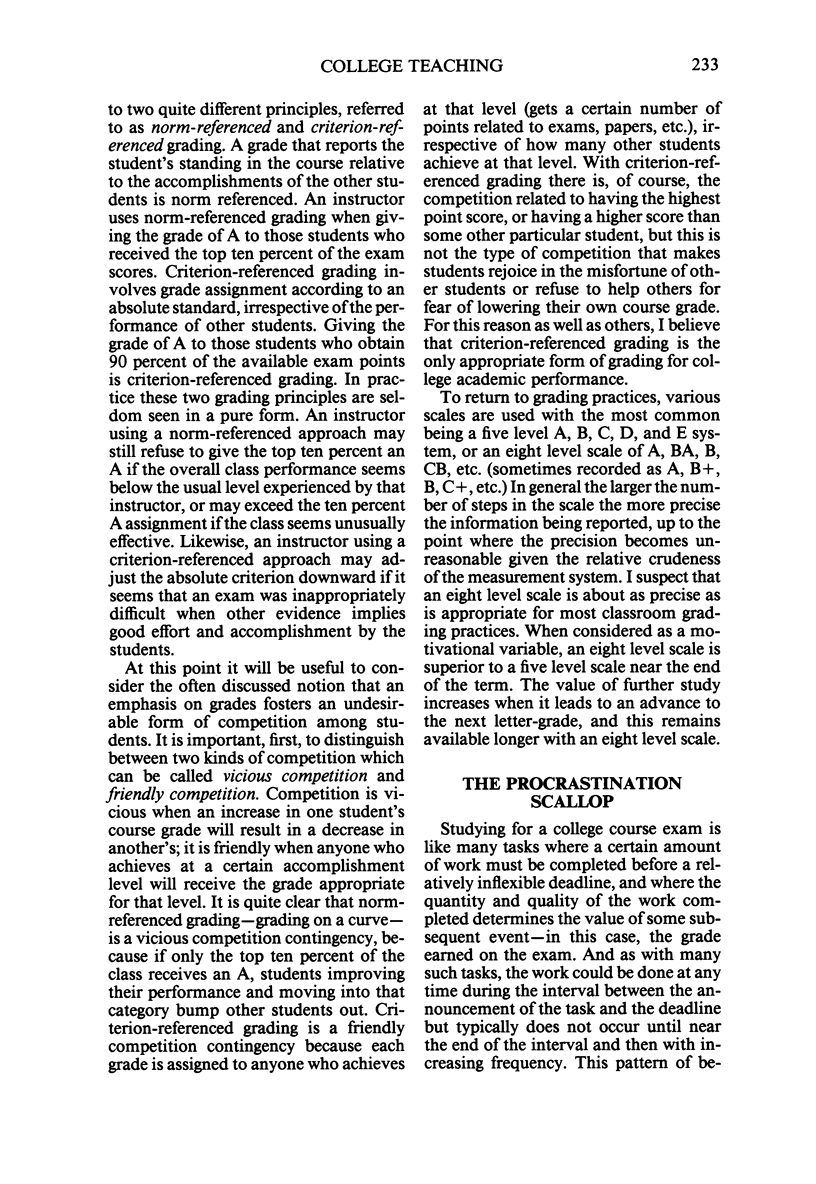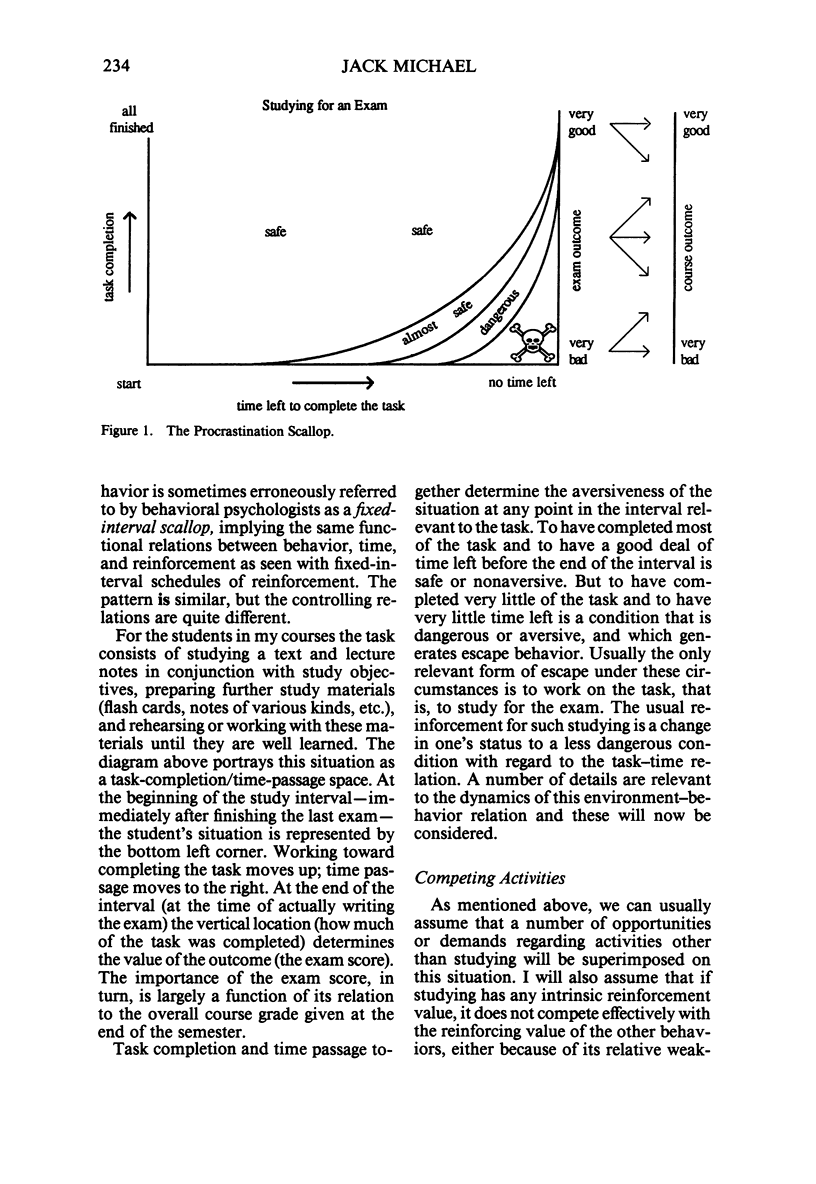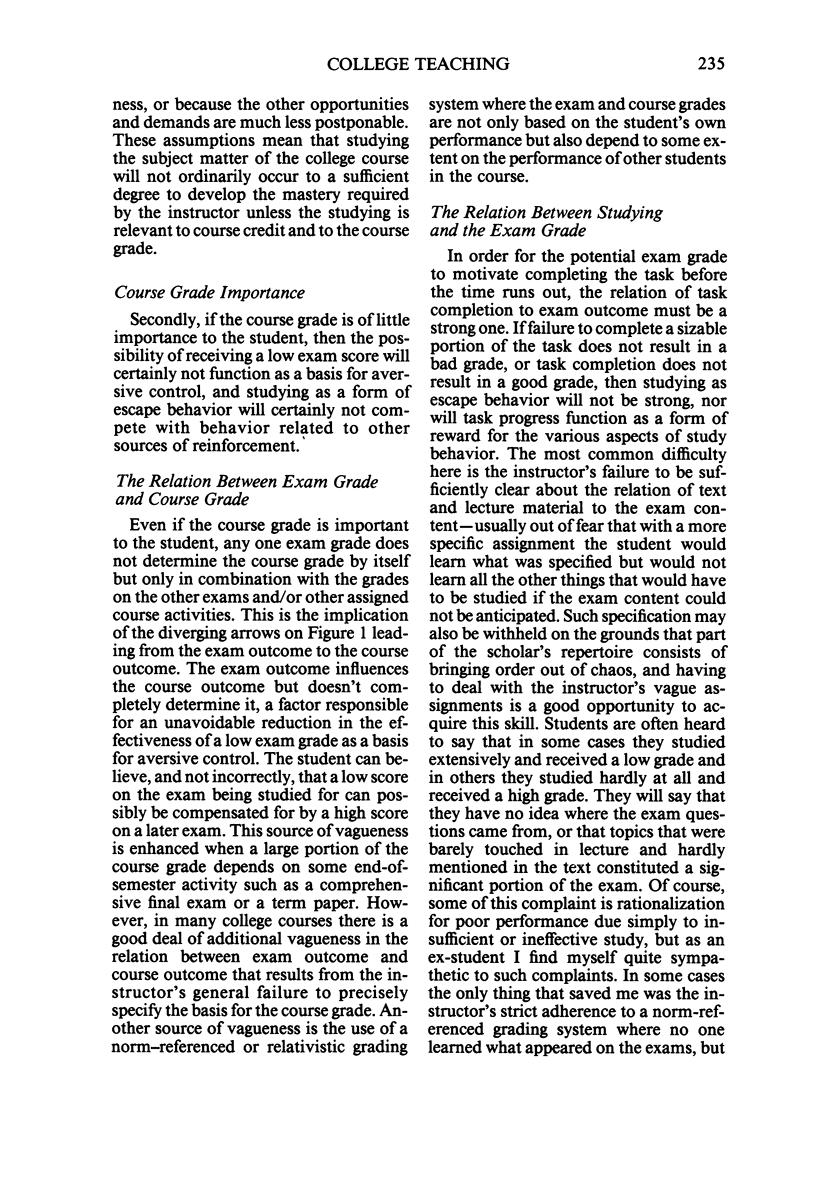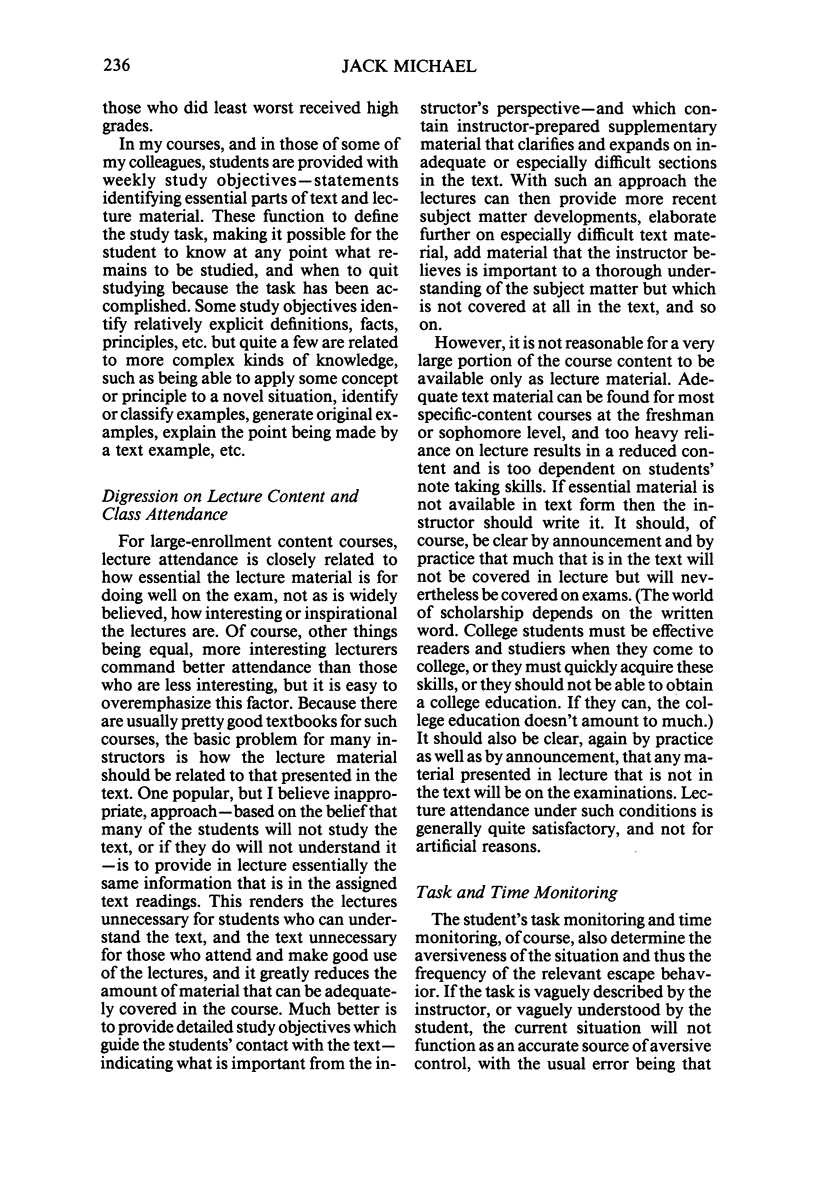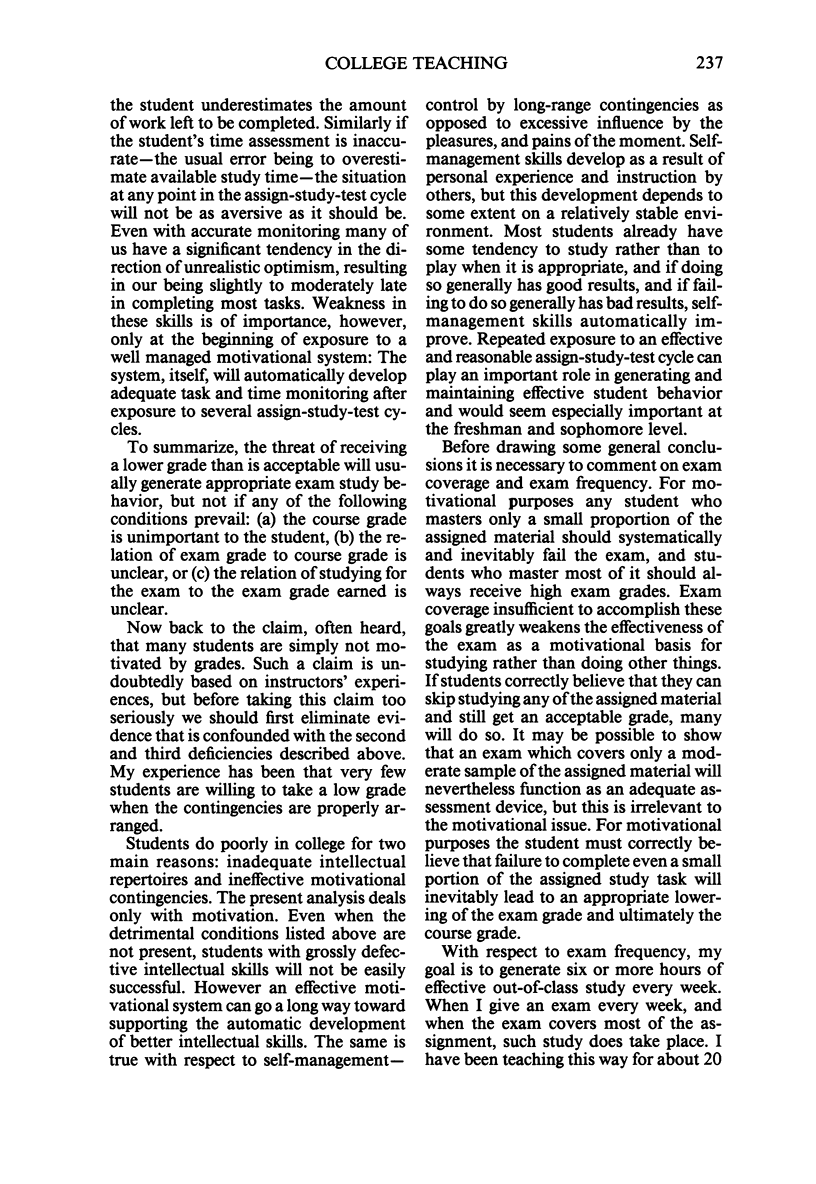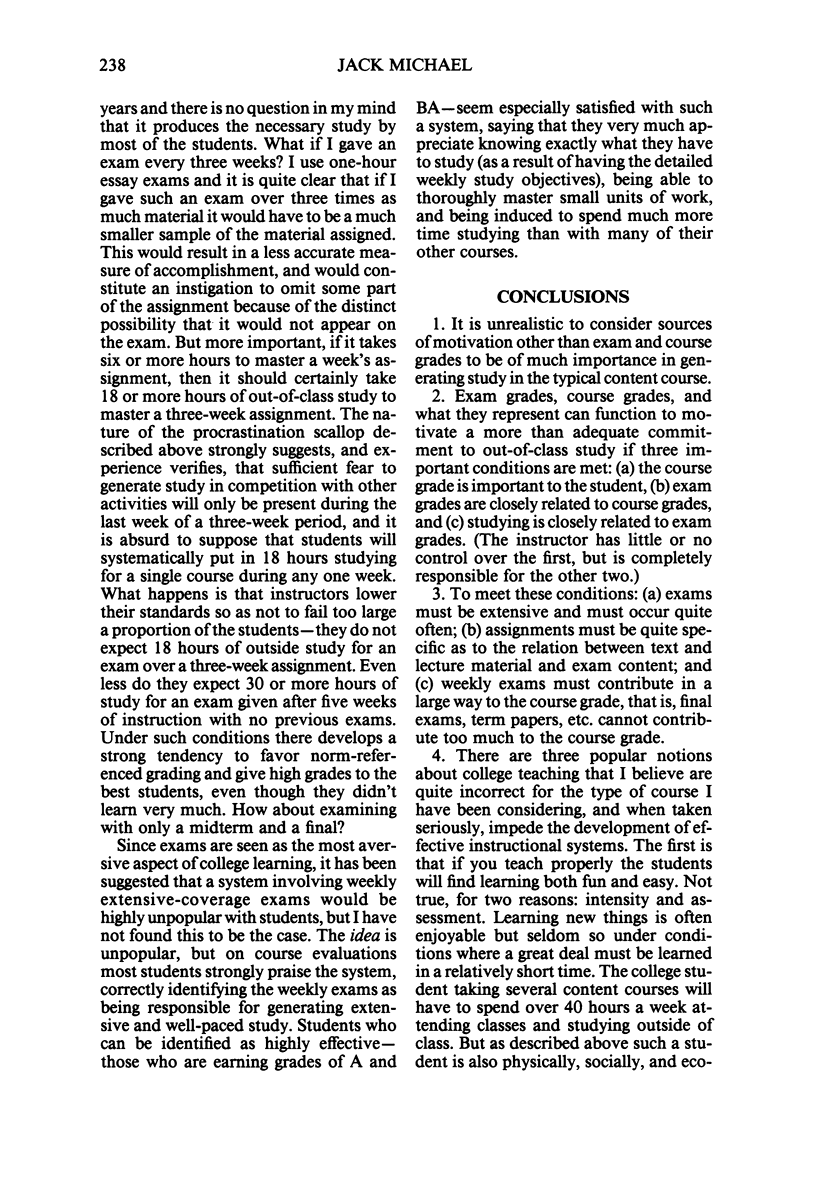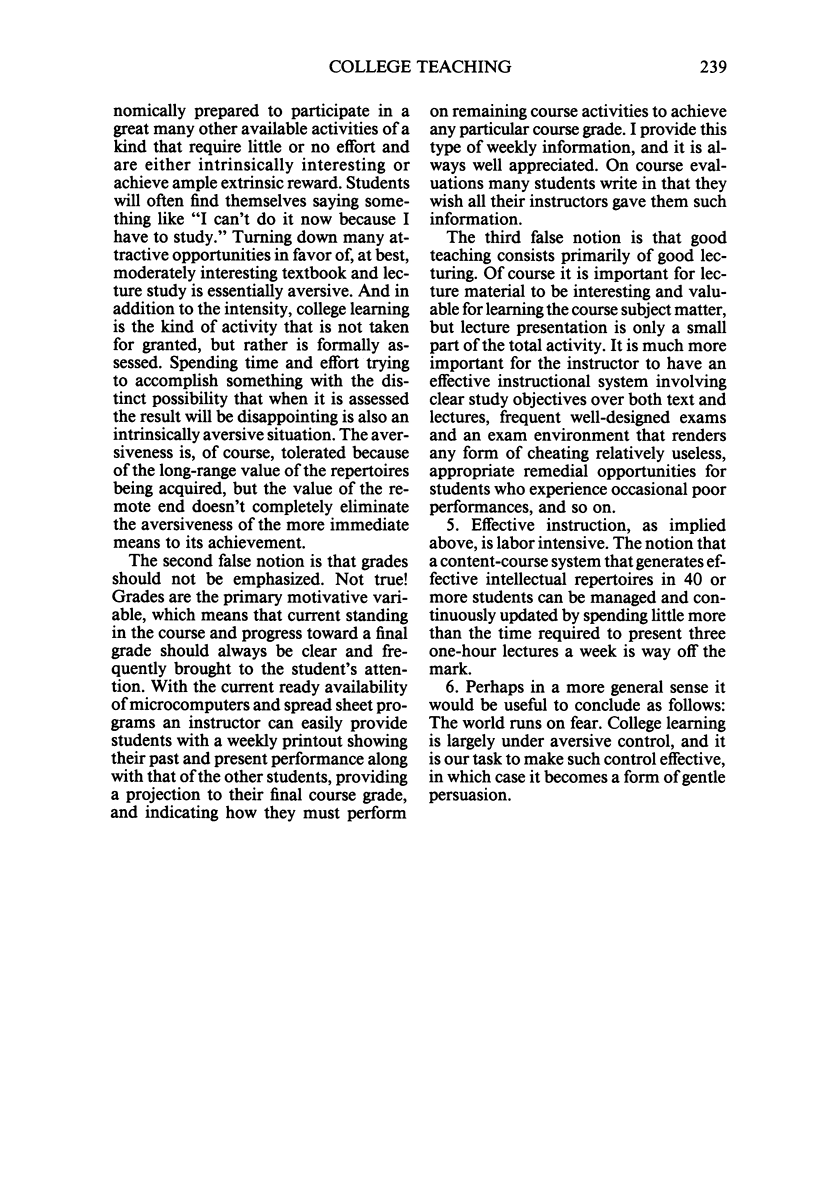Abstract
Much of the subject matter learned in college, particularly during the first two years, is taught in relatively large classes with text and lecture as the primary source of the information being learned. If students make effective and prolonged contact with these sources, they can acquire extensive verbal repertoires in many areas of knowledge. Unfortunately there are many other activities that compete for the typical student's study time. Several factors are often cited as variables that will support study behavior in competition with other activities, but the only powerful one available to the teacher is the exam grade, as it is related to the course grade. However, unless exams are clearly related to appropriate study behavior, require through and extensive coverage of the subject matter, occur frequently (preferably no less often than once a week), and are also clearly related to the course grade, even this factor will not generate prolonged and effective study behavior. Effective college teaching is essentially a form of aversive control, but if done properly the aversiveness is quite mild, and such aversive control can be responsible for the development of large and valuable intellectual repertoires.
Full text
PDF